Diana Rodgers
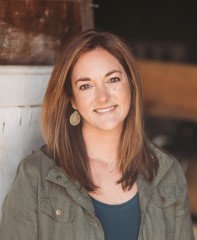 Diana Rodgers, RD, is a “real food” nutritionist and sustainability advocate near Boston, Massachusetts. She’s runs a clinical nutrition practice, hosts the Sustainable Dish Podcast, and is the author of three books including Sacred Cow: The Case for (Better) Meat. She’s also the director, producer of the documentary film, Sacred Cow. She speaks internationally about meat’s role in the diet, and is the Executive Director of the Global Food Justice Alliance, which advocates for the inclusion of animal-sourced foods in dietary policies for a more nutritious, sustainable, and equitable worldwide food system.
Diana Rodgers, RD, is a “real food” nutritionist and sustainability advocate near Boston, Massachusetts. She’s runs a clinical nutrition practice, hosts the Sustainable Dish Podcast, and is the author of three books including Sacred Cow: The Case for (Better) Meat. She’s also the director, producer of the documentary film, Sacred Cow. She speaks internationally about meat’s role in the diet, and is the Executive Director of the Global Food Justice Alliance, which advocates for the inclusion of animal-sourced foods in dietary policies for a more nutritious, sustainable, and equitable worldwide food system.
Alice Stanton
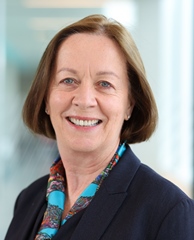 Professor Alice Stanton is a clinician-scientist. She is currently Professor in Cardiovascular Pharmacology at the Royal College of Surgeons in Ireland, and Director of Human Health at Devenish Nutrition. She served on the Committee developing “Ireland’s Agri-food Strategy to 2030” and as an Assembly Member for the Horizon Europe Cancer Mission. She is a Member of the Irish Climate and Health Coalition.
Professor Alice Stanton is a clinician-scientist. She is currently Professor in Cardiovascular Pharmacology at the Royal College of Surgeons in Ireland, and Director of Human Health at Devenish Nutrition. She served on the Committee developing “Ireland’s Agri-food Strategy to 2030” and as an Assembly Member for the Horizon Europe Cancer Mission. She is a Member of the Irish Climate and Health Coalition.
She has delivered many lectures concerning evidence-based healthy diets from sustainable food systems, including the Science Lecture, entitled “Food Quality & Human Health – The Evidence”, at the 2020 Oxford Farming Conference.
She has authored in excess of 140 peer-reviewed published papers, and recently was lead author on a letter, published in The Lancet, which robustly questions the reliability of the Global Burden of Disease 2019 collaborators’ estimates of deaths attributable to unprocessed red meat.
Bradley Johnston
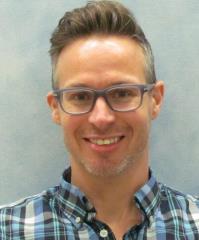 Dr. Bradley Johnston is an Associate Professor in the Departments of Nutrition, Epidemiology and Biostatistics at Texas A&M University. Dr. Johnston obtained his PhD in Experimental Medicine from University of Alberta, and he completed post-doctoral training at Oxford University in Evidence-Based Health Care and McMaster University in Clinical Epidemiology and Biostatistics. As the Director and Co-founder of NutriRECS research and education program (www.nutrirecs.com), he leads an international consortium of researchers and research trainees developing high quality, value-added nutritional guideline recommendations on major public health nutrition questions. As a leading advocate of optimizing evidence-based nutrition practice, he has published first and senior authored nutrition research in the Journal of the American Medical Association (JAMA), British Medical Journal (BMJ), Annals of Internal Medicine and American Journal of Clinical Nutrition. He has a Google H-Index of 58, and the work he has collaboratively contributed to has been cited over 14,000 times.
Dr. Bradley Johnston is an Associate Professor in the Departments of Nutrition, Epidemiology and Biostatistics at Texas A&M University. Dr. Johnston obtained his PhD in Experimental Medicine from University of Alberta, and he completed post-doctoral training at Oxford University in Evidence-Based Health Care and McMaster University in Clinical Epidemiology and Biostatistics. As the Director and Co-founder of NutriRECS research and education program (www.nutrirecs.com), he leads an international consortium of researchers and research trainees developing high quality, value-added nutritional guideline recommendations on major public health nutrition questions. As a leading advocate of optimizing evidence-based nutrition practice, he has published first and senior authored nutrition research in the Journal of the American Medical Association (JAMA), British Medical Journal (BMJ), Annals of Internal Medicine and American Journal of Clinical Nutrition. He has a Google H-Index of 58, and the work he has collaboratively contributed to has been cited over 14,000 times.
Neil Mann
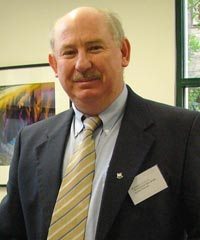 Currently professor of food science and human nutrition at the University of Melbourne, Neil Mann was previously Head of the Food Science and Nutrition Department at RMIT University, Melbourne. He has been the director of numerous research projects in the area of food science and human nutrition, including clinical trials involving meat consumption and other food components. He has a special interest in the area of evolution of human food habits, which has culminated in numerous papers on hominin meat consumption and writing a scientific text on evolution and human nutrition, while a Visiting Research Fellow at Oxford University, School of Anthropology. Professor Mann has been heavily involved in lecturing nutrition, physiology, biochemistry and food science and food systems units to undergraduate students as well as supervising postgraduate students in their research projects. He is a Fellow of the Nutrition Society of Australia and has many nutrition research publications in high level scientific journals and more than 100 papers in national and international conference proceedings.
Currently professor of food science and human nutrition at the University of Melbourne, Neil Mann was previously Head of the Food Science and Nutrition Department at RMIT University, Melbourne. He has been the director of numerous research projects in the area of food science and human nutrition, including clinical trials involving meat consumption and other food components. He has a special interest in the area of evolution of human food habits, which has culminated in numerous papers on hominin meat consumption and writing a scientific text on evolution and human nutrition, while a Visiting Research Fellow at Oxford University, School of Anthropology. Professor Mann has been heavily involved in lecturing nutrition, physiology, biochemistry and food science and food systems units to undergraduate students as well as supervising postgraduate students in their research projects. He is a Fellow of the Nutrition Society of Australia and has many nutrition research publications in high level scientific journals and more than 100 papers in national and international conference proceedings.
Nick Smith
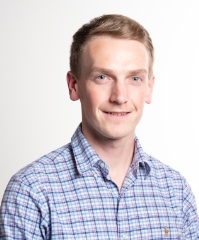 Dr Nick Smith holds degrees in mathematics and in nutritional science from Swansea University (UK) and Massey University (NZ). His expertise is in mathematical modelling of complex systems, with a particular focus on human nutrition. His former research interest was in predictive models for dynamics in the human intestinal microbiome, and the influence on host health and wellbeing. He now studies the dynamics of the global food system and their impact on the nutrition of the global population. Dr Smith is currently a Research Officer at the Riddet Institute, a New Zealand Centre of Research Excellence hosted by Massey University. The focus of the Riddet Institute is upon food science, food technology, and human nutrition. Dr Smith’s current research is part of the Sustainable Nutrition Initiative, a program providing evidence for the sustainable food system debate and ensuring that human nutrition is seen as a key aspect of sustainability. His focus is on the continued development of the DELTA Model: a world-leading and freely available tool to investigate sustainable nutrient production and what is possible, practical and optimal from the global food system.
Dr Nick Smith holds degrees in mathematics and in nutritional science from Swansea University (UK) and Massey University (NZ). His expertise is in mathematical modelling of complex systems, with a particular focus on human nutrition. His former research interest was in predictive models for dynamics in the human intestinal microbiome, and the influence on host health and wellbeing. He now studies the dynamics of the global food system and their impact on the nutrition of the global population. Dr Smith is currently a Research Officer at the Riddet Institute, a New Zealand Centre of Research Excellence hosted by Massey University. The focus of the Riddet Institute is upon food science, food technology, and human nutrition. Dr Smith’s current research is part of the Sustainable Nutrition Initiative, a program providing evidence for the sustainable food system debate and ensuring that human nutrition is seen as a key aspect of sustainability. His focus is on the continued development of the DELTA Model: a world-leading and freely available tool to investigate sustainable nutrient production and what is possible, practical and optimal from the global food system.
Peter Ballerstedt
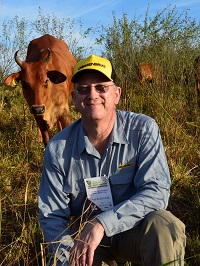 Peter Ballerstedt received his Bachelor of Science in Agriculture in 1981 and Master of Science in 1983, both from the University of Georgia. He received his Ph.D. from the University of Kentucky in 1986, specializing in forage management and utilization, minoring in ruminant nutrition. Peter has extensive experience in forage agriculture. He was the forage extension specialist at Oregon State University from 1986 until 1992. He’s worked in the forage seed industry since 2011. Peter advocates for ruminant animal agriculture’s role in food systems and the essential role of animal source foods in the human diet. Through Grass Based Health he strives to build bridges between producers and consumers, and researchers across a wide variety of scientific disciplines. Peter has spoken at many different events in the US and internationally. Many of his presentations are available on YouTube. Peter and Nancy live in western Oregon.
Peter Ballerstedt received his Bachelor of Science in Agriculture in 1981 and Master of Science in 1983, both from the University of Georgia. He received his Ph.D. from the University of Kentucky in 1986, specializing in forage management and utilization, minoring in ruminant nutrition. Peter has extensive experience in forage agriculture. He was the forage extension specialist at Oregon State University from 1986 until 1992. He’s worked in the forage seed industry since 2011. Peter advocates for ruminant animal agriculture’s role in food systems and the essential role of animal source foods in the human diet. Through Grass Based Health he strives to build bridges between producers and consumers, and researchers across a wide variety of scientific disciplines. Peter has spoken at many different events in the US and internationally. Many of his presentations are available on YouTube. Peter and Nancy live in western Oregon.
Pablo Manzano
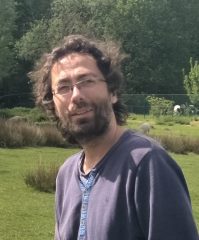 Pablo Manzano is a PhD on rangeland ecology (2015) at the Universidad Autónoma de Madrid in Spain. With a background on Biology, he has developed a mixed career in research and international development, where he has entered into contact with other disciplines such as Economics, Sociology and Anthropology. He first worked in Bosnia and Herzegovina for three years in the frame of a development cooperation project funded by the Spanish Agency for International Cooperation. He then joined the International Union for Conservation of Nature in Nairobi for four years, to coordinate a global program on pastoralism and conservation, to later coordinate a further global program on pastoralism at the Food and Agriculture Organization of the United Nations in Rome. After four more years as international consultant in livestock and the environment, he joined the University of Helsinki, Finland, as a post-doc fellow of the Helsinki Institute of Sustainability (HELSUS). Since 2022 he is an Ikerbasque Fellow at the Basque Centre for Climate Change in Bilbao, Spain. He develops transdisciplinary research on sustainability of rural societies and grazed ecosystems, combining data and approaches from both the Global North and the Global South and across temporal scales, with a particular emphasis on the ecological processes mediated by herbivores, be it wild or domestic.
Pablo Manzano is a PhD on rangeland ecology (2015) at the Universidad Autónoma de Madrid in Spain. With a background on Biology, he has developed a mixed career in research and international development, where he has entered into contact with other disciplines such as Economics, Sociology and Anthropology. He first worked in Bosnia and Herzegovina for three years in the frame of a development cooperation project funded by the Spanish Agency for International Cooperation. He then joined the International Union for Conservation of Nature in Nairobi for four years, to coordinate a global program on pastoralism and conservation, to later coordinate a further global program on pastoralism at the Food and Agriculture Organization of the United Nations in Rome. After four more years as international consultant in livestock and the environment, he joined the University of Helsinki, Finland, as a post-doc fellow of the Helsinki Institute of Sustainability (HELSUS). Since 2022 he is an Ikerbasque Fellow at the Basque Centre for Climate Change in Bilbao, Spain. He develops transdisciplinary research on sustainability of rural societies and grazed ecosystems, combining data and approaches from both the Global North and the Global South and across temporal scales, with a particular emphasis on the ecological processes mediated by herbivores, be it wild or domestic.
Jason Rowntree
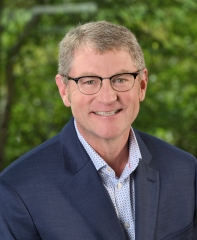 Jason Rowntree is a professor of Animal Science at Michigan State University where he holds the Charles Stewart Mott Distinguished Professorship for Sustainable Agriculture. He also serves as the Director of MSU’s Center for Regenerative Agriculture. Rowntree’s research focus is identifying the metrics and management that reflect ecological improvement in grazing land systems. He conducts this work at Lake City AgBio Research Center where he also maintains coordinator responsibilities. Since arriving to MSU in 2009, Rowntree has given over 250 talks throughout the United States, Canada, Europe, Saudi Arabia, Africa and New Zealand. He has also worked to co-develop, with the Savory Institute, an Ecological Outcome Verification that is now being used on over 2 M acres of grasslands on every continent except Antarctica. The EOV has also been branded for products marketed by General Mills, Applegate, Timberland and many others. He is the project director of a new $19.2 M funded project entitled, “Metrics, Management, and Monitoring: An Investigation of Pasture and Rangeland Soil Health and its Drivers”. His work in beef sustainability has been featured in the movie Sacred Cow, The Washington Post, New York Times, Forbes and many other popular media publications.
Jason Rowntree is a professor of Animal Science at Michigan State University where he holds the Charles Stewart Mott Distinguished Professorship for Sustainable Agriculture. He also serves as the Director of MSU’s Center for Regenerative Agriculture. Rowntree’s research focus is identifying the metrics and management that reflect ecological improvement in grazing land systems. He conducts this work at Lake City AgBio Research Center where he also maintains coordinator responsibilities. Since arriving to MSU in 2009, Rowntree has given over 250 talks throughout the United States, Canada, Europe, Saudi Arabia, Africa and New Zealand. He has also worked to co-develop, with the Savory Institute, an Ecological Outcome Verification that is now being used on over 2 M acres of grasslands on every continent except Antarctica. The EOV has also been branded for products marketed by General Mills, Applegate, Timberland and many others. He is the project director of a new $19.2 M funded project entitled, “Metrics, Management, and Monitoring: An Investigation of Pasture and Rangeland Soil Health and its Drivers”. His work in beef sustainability has been featured in the movie Sacred Cow, The Washington Post, New York Times, Forbes and many other popular media publications.
Wilhelm Windisch
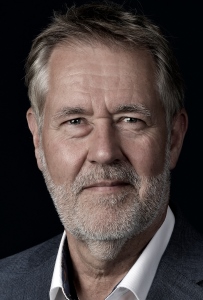 Wilhelm Windisch investigates the nutritional properties of feed materials and the physiological principles and tolerances of transformation of feed biomass in the metabolism of agricultural livestock. He focusses in particular on functional dietary compounds including antinutritive substances, bioavailability and metabolism of essential trace minerals, and the impact of livestock feeding on food quality, food safety and environment. After studying agricultural science at TUM, he finished his doctorate in 1988 and his habilitation in 1995. Prior to his appointment as full professor at TUM, he was full professor of Animal Nutrition at the University of Natural Resources and Life Sciences Vienna (BOKU) (2002-2010). He is a member of the Society for Nutrition Physiology (GfE) and other scientific societies.
Wilhelm Windisch investigates the nutritional properties of feed materials and the physiological principles and tolerances of transformation of feed biomass in the metabolism of agricultural livestock. He focusses in particular on functional dietary compounds including antinutritive substances, bioavailability and metabolism of essential trace minerals, and the impact of livestock feeding on food quality, food safety and environment. After studying agricultural science at TUM, he finished his doctorate in 1988 and his habilitation in 1995. Prior to his appointment as full professor at TUM, he was full professor of Animal Nutrition at the University of Natural Resources and Life Sciences Vienna (BOKU) (2002-2010). He is a member of the Society for Nutrition Physiology (GfE) and other scientific societies.
Max Makuvise
 Max Makuvise (Zimbabwe) Chairman and Founder, Makera Cattle Company. A trained accountant, Max entered the Zimbabwean animal health industry in 1997 joining Cooper Zimbabwe Ltd. Six years later, he founded Makera Cattle Company. He has embarked on many projects involving rural communities; genetic improvement; training; product supply and traceability, which has seen him partner with the donor community, Government and other private sector players. His quest? To empower rural livestock farmers and help them commercialise their operations through the ‘Conception to Consumption’ principle. Currently he is Vice-chair of the Southern African Regional Roundtable for Sustainable Beef and sits on the Board of the Global Roundtable for Sustainable Beef (GRSB). Max is also a resident Director for Shangani Holistic (Pvt) Ltd which has over 8,200 cattle under holistic management, and a strong research arm to find solutions for the ranch and smallholder farmers, as well as integrating cattle and wildlife management on the same property. The 2020 founding of E-Livestock Global working on cattle traceability using blockchain is his most recent venture. This will ensure that farmers are not left behind and can benefit from inclusion in the formal sector as well as financial inclusivity.
Max Makuvise (Zimbabwe) Chairman and Founder, Makera Cattle Company. A trained accountant, Max entered the Zimbabwean animal health industry in 1997 joining Cooper Zimbabwe Ltd. Six years later, he founded Makera Cattle Company. He has embarked on many projects involving rural communities; genetic improvement; training; product supply and traceability, which has seen him partner with the donor community, Government and other private sector players. His quest? To empower rural livestock farmers and help them commercialise their operations through the ‘Conception to Consumption’ principle. Currently he is Vice-chair of the Southern African Regional Roundtable for Sustainable Beef and sits on the Board of the Global Roundtable for Sustainable Beef (GRSB). Max is also a resident Director for Shangani Holistic (Pvt) Ltd which has over 8,200 cattle under holistic management, and a strong research arm to find solutions for the ranch and smallholder farmers, as well as integrating cattle and wildlife management on the same property. The 2020 founding of E-Livestock Global working on cattle traceability using blockchain is his most recent venture. This will ensure that farmers are not left behind and can benefit from inclusion in the formal sector as well as financial inclusivity.
Theo de Jager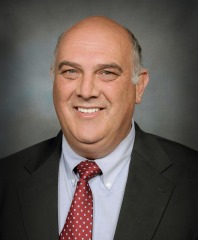
Theo de Jager is a fruit farmer in the Limpopo Drakensberg, South Africa. He chairs the boards of FANRPAN, Agri All Africa and the family farmers` network SAAI, a visionary leader with unique strategic management skills combined with a real passion for African economic development and upliftment of its people. Theo is dedicated to see a better understanding for Africa and support for Agricultural growth on this continent. He was President of the World Farmers` Organisation (WFO) from 2017-June 2022 and the President of the Pan African Farmers Organisation (PAFO) from 2014-2017. He represented AgriSA at the Southern African Confederation of Agricultural Unions (SACAU) from 2012 and acted as the President since 2013 – 2017. As an honorary member of the Commercial Farmers Union of Zimbabwe, he was awarded their “Oscar” in 2021. Theo was awarded the South African Agricultural Writers` Association prestigious “Agriculturalist of the Year” award twice (2009 and 2015). Theo holds a Doctorate in African Philosophy from the University of Pretoria and has published more than 600 articles, books, and poems. He has been a visiting lecturer with the South African Defence College on global conflict and food security, since 1991. Dr de Jager specialises in agriculture, farmer development, land reform, farming in Africa, and a vocal activist for climate change and climate smart agriculture, on various international platforms.
Shirley Tarawali
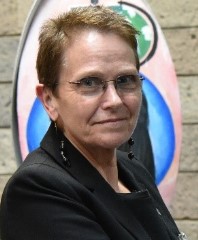 Shirley Tarawali is Assistant Director General at International Livestock Research Institute (ILRI) a CGIAR centre based in Kenya and is Chair of the Global Agenda for Sustainable Livestock. Shirley’s portfolio includes representation, engagement within ILRI and beyond for livestock and the wider development agenda. She coordinated ILRI’s strategy process and led the inception and growth of ILRI’s portfolio on sustainable livestock advocacy and communications. Shirley has over 30 years’ experience implementing and leading livestock research for development, has authored or
Shirley Tarawali is Assistant Director General at International Livestock Research Institute (ILRI) a CGIAR centre based in Kenya and is Chair of the Global Agenda for Sustainable Livestock. Shirley’s portfolio includes representation, engagement within ILRI and beyond for livestock and the wider development agenda. She coordinated ILRI’s strategy process and led the inception and growth of ILRI’s portfolio on sustainable livestock advocacy and communications. Shirley has over 30 years’ experience implementing and leading livestock research for development, has authored or
Peer Ederer
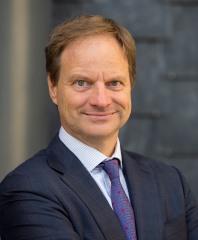 Prof Dr Peer Ederer has been a strategy advisor, researcher and investor in the space of global food systems since 2004. He is Director and founder of the Global Food & Agribusiness Network, which provides a platform for senior decision makers in the food and agribusiness industry to define their strategies and perspectives. The Network operates the data portal and research observatory GOALSciences.org. He studied business administration at Sophia University in Tokyo and at Harvard Business School in Boston. He completed his PhD at the University of Witten Herdecke and teaches at Zeppelin University in Germany and Luxembourg University.
Prof Dr Peer Ederer has been a strategy advisor, researcher and investor in the space of global food systems since 2004. He is Director and founder of the Global Food & Agribusiness Network, which provides a platform for senior decision makers in the food and agribusiness industry to define their strategies and perspectives. The Network operates the data portal and research observatory GOALSciences.org. He studied business administration at Sophia University in Tokyo and at Harvard Business School in Boston. He completed his PhD at the University of Witten Herdecke and teaches at Zeppelin University in Germany and Luxembourg University.
Candace Croney
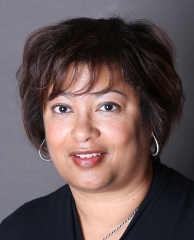 Dr. Candace Croney is Professor of animal behaviour and well-being in the departments of Comparative Pathobiology and Animal Sciences, Director of the Center for Animal Welfare Science, and Associate Vice-Provost of Diversity, Inclusion and Belonging at Purdue University. She earned her PhD in animal sciences from The Pennsylvania State University, focusing on animal cognition, behaviour, welfare, and ethics. Following postdoctoral training at the University of Maryland, College Park, she went on to serve as Assistant Director of Conservation Education at the American Zoo and Aquarium Association. She has also held faculty appointments in Animal Sciences at Oregon State University and in Preventive Medicine at The Ohio State University College of Veterinary Medicine. Her research and engagement programs focus on developing, refining, and utilizing non-invasive metrics of animal welfare to optimize animal quality of life and related care and management practices. She has extensively studied and published on public perceptions of animal welfare, the bioethical implications of animal care and use decisions, and their relationship to corporate social responsibility and sustainability. Her work has been featured in national and international broadcast programs by National Geographic, Animal Planet, and the BBC. She serves as scientific advisor on animal welfare to numerous groups, including the American Humane Association, Tyson Foods, Fairlife, Bob Evans Farms, and Wayne Farms
Dr. Candace Croney is Professor of animal behaviour and well-being in the departments of Comparative Pathobiology and Animal Sciences, Director of the Center for Animal Welfare Science, and Associate Vice-Provost of Diversity, Inclusion and Belonging at Purdue University. She earned her PhD in animal sciences from The Pennsylvania State University, focusing on animal cognition, behaviour, welfare, and ethics. Following postdoctoral training at the University of Maryland, College Park, she went on to serve as Assistant Director of Conservation Education at the American Zoo and Aquarium Association. She has also held faculty appointments in Animal Sciences at Oregon State University and in Preventive Medicine at The Ohio State University College of Veterinary Medicine. Her research and engagement programs focus on developing, refining, and utilizing non-invasive metrics of animal welfare to optimize animal quality of life and related care and management practices. She has extensively studied and published on public perceptions of animal welfare, the bioethical implications of animal care and use decisions, and their relationship to corporate social responsibility and sustainability. Her work has been featured in national and international broadcast programs by National Geographic, Animal Planet, and the BBC. She serves as scientific advisor on animal welfare to numerous groups, including the American Humane Association, Tyson Foods, Fairlife, Bob Evans Farms, and Wayne Farms
Paul Wood
Professor Paul Wood AO has led R&D teams from CSIRO, CSL and Pfizer Animal Health (now Zoetis) and was Deputy-Director of the Vaccine Technology CRC. He brought several innovative products to the market, receiving recognition for his work to invent a new diagnostic test for Tuberculosis, including the CSIRO Medal, the Clunies Ross award and made an Officer in the Order of Australia. Paul is the Chair of the Global Alliance for Livestock Veternary Medicines and an Insect farming start-up, on the Boards of Dairy Australia and the Australian Academy Technology, Science and Engineering and currently an Adjunct Professor at Monash University.
Frédéric Leroy
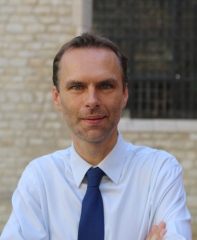
Celso Moretti
Celso Moretti holds a BSc. in agronomy, and a Master and a Ph.D. in plant science. A researcher with Embrapa since 1994, he has dedicated the last thirteen years to public administration. He is an alumnus (2016) of the Harvard School of Government, Harvard University (USA). He is a Courtesy Associate Professor with the University of Florida (USA) since 2006. Dr. Moretti is member of the Global Panel for Agriculture and Food Systems for Nutrition (United Kingdom) and an Executive Board member of the following associations: The Cooperative Program for Technological Development of Agriculture and Agro Industry in the Southern Cone of the Americas; Brazilian Association of Agribusiness (ABAG); the Council of Agribusiness of the State of Sao Paulo Industries (Cosag/ Fiesp); and the International Center for Biosaline Agriculture (ICBA, United Arab Emirates). He is author of book chapters, editor of technical books and author and co-author of scientific papers in national and international journals. He has extensive international experience having presented scientific papers, acted as a consultant and delivered lectures, seminars and conferences in more than 40 countries. He was a consultant to the UNDP for China and the Inter- American Development Bank (IDB, USA). He is currently the President of Embrapa.
